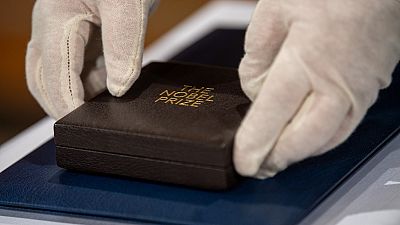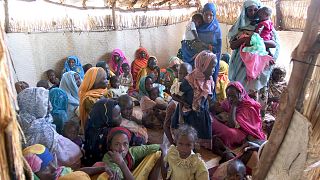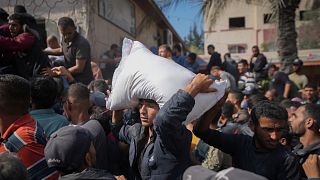World Food Programme
The World Food Programme received its Nobel Peace Prize on Thursday. Because of the global pandemic, the event was without the traditional pomp-filled celebration in the Norwegian capital.
"To the Norwegian Nobel Committee, thank you for this great honor. Also, thank you for acknowledging our work of using food to combat hunger, to mitigating destabilization of nations, to prevent mass migrations, to end conflict and to create stability and peace," Executive Director of the Programme, David Beasley said.
The Norwegian Nobel Committee awarded the Nobel Peace Prize for 2020 to the World Food Programme (WFP) for its efforts to combat hunger, its contribution to better the conditions for peace in conflict-affected areas, and efforts at preventing the use of hunger as a weapon of war and conflict.
The World Food Programme is the world’s largest humanitarian organization addressing hunger and promoting food security.
In 2019, it provided assistance to close to 100 million people in 88 countries who are victims of acute food insecurity and hunger. In 2015, eradicating hunger was adopted as one of the UN’s Sustainable Development Goals. The WFP is the UN’s primary instrument for achieving this goal. In recent years, the situation has taken a negative turn. In 2019, 135 million people suffered from acute hunger. This is the highest number in many years, which is largely caused by war and armed conflict.













Go to video
World Food Programme to halt aid for 650,000 women and children in Ethiopia
Go to video
Sudan: World Food Programme warns of hunger crisis, asks for more funding
Go to video
At least 14 million children worldwide risk malnutrition, warns UNICEF
Go to video
Uncertainty as US alters emergency food aid strategies in Somalia
02:04
DRC: UN agencies warn of escalating food crisis due to conflict and price hike
01:44
South Africa: United Nations' WFP closes office in Southern Africa due to funding